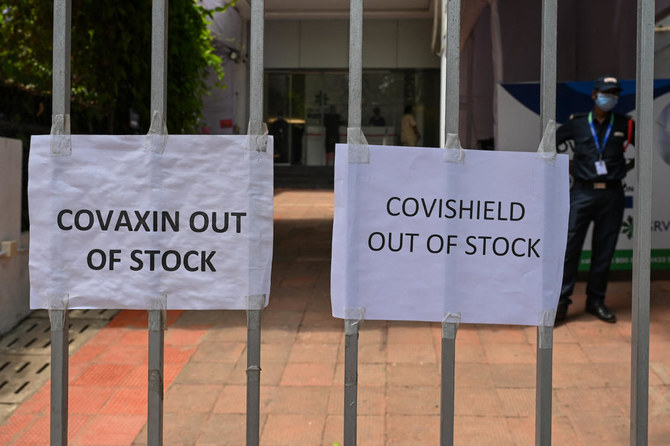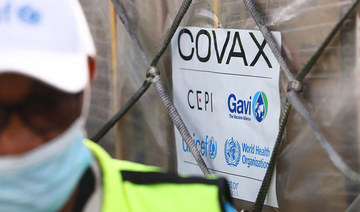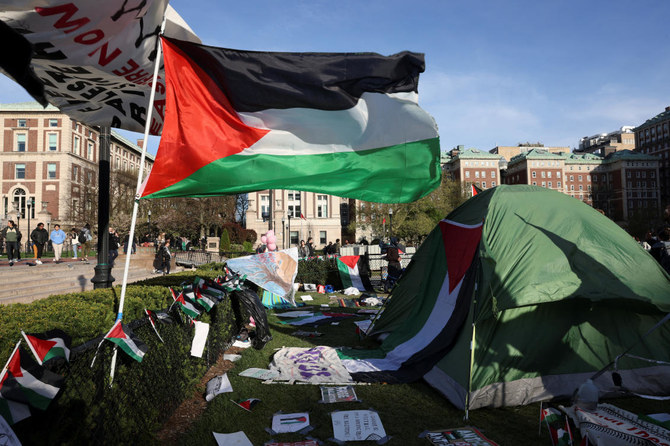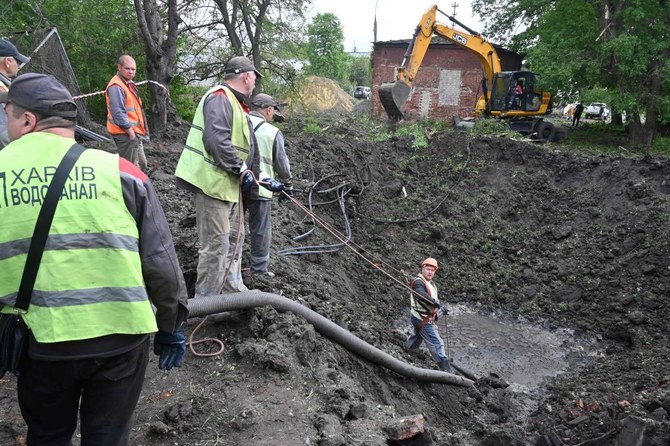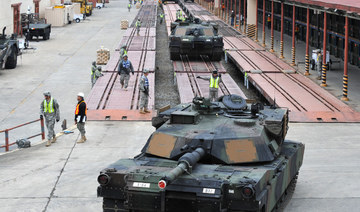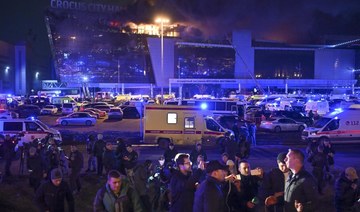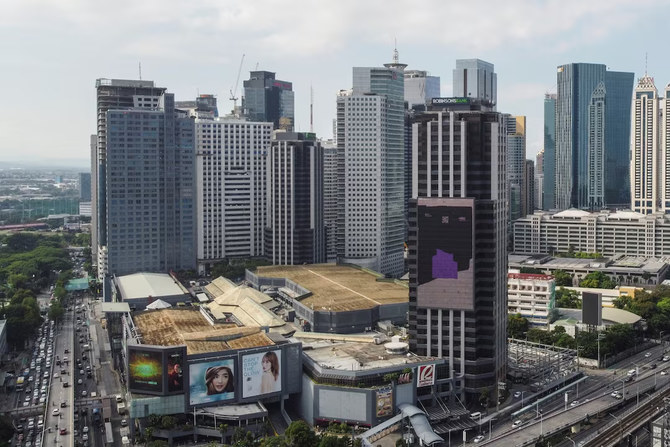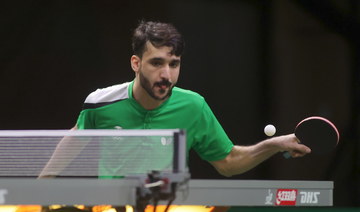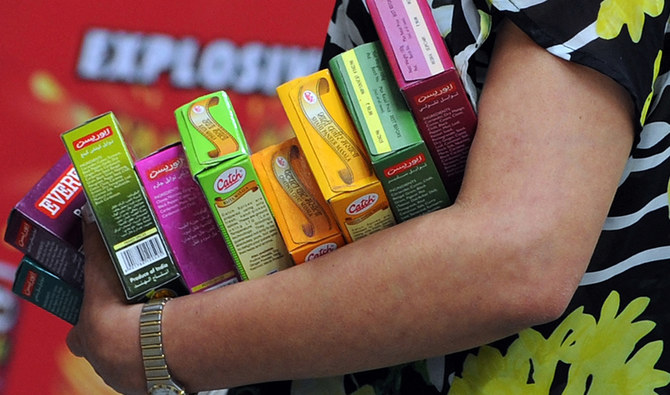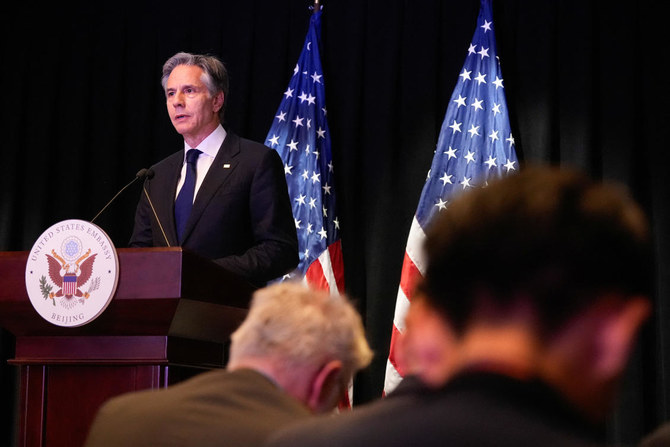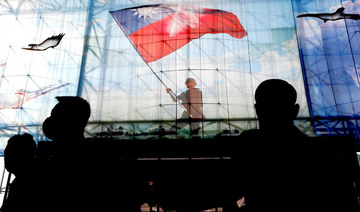NAIROBI: The African Union special envoy tasked with leading efforts to procure COVID-19 vaccines for the continent is blasting Europe as Africa struggles amid a crushing third surge of infections, saying Thursday that “not one dose, not one vial, has left a European factory for Africa.”
Strive Masiyiwa also took aim at the global effort meant to distribute vaccines to low- and middle-income countries, accusing COVAX of withholding crucial information including that key donors hadn’t met funding pledges. He didn’t name which donors.
“The situation could be very different had we known back in December that ‘Listen, this help is not coming, do for yourselves,’” Masiyiwa told reporters, adding that “many countries were just sitting back saying, ‘the vaccines are coming.’ ... We as Africans are disappointed.”
The criticism revealed African leaders’ sheer exasperation at the world’s dramatic vaccine divide, with Masiyiwa describing vaccinated, unmasked Europeans attending football matches while just one percent of Africans are fully vaccinated against COVID-19.
He stressed that Africa has purchased 400 million vaccine doses and can buy more, but he challenged donors: “Pay up your money ... We will no longer measure pledges, we will measure vaccines arriving at our airports.”
The African continent of 1.3 billion people is now in the grip of a third surge of infections that is “extremely aggressive,” the head of the Africa Centers for Disease Control and Prevention, John Nkengasong, told reporters. Health officials have described overflowing COVID-19 wards, dangerous oxygen shortages and a growing spread of the virus to extremely vulnerable and unequipped rural areas.
Masiyiwa said COVAX had promised to deliver 700 million vaccine doses to Africa by December. But at mid-year, Africa has received just 65 million doses overall. Less than 50 million doses via COVAX have arrived.
“We are very far away from our target,” Nkengasong said. “We don’t want to be seen as the continent of COVID ... (In Europe) the stadiums are full of young people shouting and hugging. We can’t do that in Africa.”Spokespeople for COVAX did not immediately respond to a request for comment.
However, Nkengasong and Masiyiwa announced that the first shipments of Johnson & Johnson and Pfizer vaccines with US support will begin arriving next week. It was not clear how many doses would be in those first shipments.
Meanwhile, more African-purchased doses will arrive in August, Masiyiwa said.
The African continent has had 5.5 million confirmed COVID-19 infections and has seen a “remarkable” 23 percent increase in deaths over the past week, the Africa CDC director said.
He said the continent needs 1.6 billion doses in a double-dose regime, or 800 million for a single-dose regime, to meet the goal of vaccinating 60 percent of the population.
Masiyiwa gave a frank accounting of where global efforts to vaccinate the world against COVID-19 had sputtered. “It became pretty clear by December that the hope that we would all as a global community buy vaccines together through COVAX was not being adhered to, particularly by the rich and powerful nations,” he said.
COVAX aimed to provide 20 percent of Africa’s vaccine needs, with African nations stepping up for the rest, he said. But “it really doesn’t matter how much money your country has, they couldn’t buy vaccines ... I never saw presidents try so hard, calling chief executives.”
The African continent has relied on vaccine manufacturing capabilities elsewhere in the world, but the COVID-19 vaccine crisis has jolted African leaders into pursuing their own production power.
Step by step, Masiyiwa laid out the challenges: Vaccine suppliers require advance purchases, and the World Bank could only lend to countries once vaccines are available. African nations scrambled via the Africa Export-Import
Bank, owned by member states, to come up with some $2 billion. African countries created a purchasing platform to improve their buying power.
But the vaccines have been hard to find as countries with manufacturing capabilities imposed controls on export sales in the interest of vaccinating their own citizens first. “It was the same whether we were talking to the East, to the West, whatever,” Masiyiwa said. “This has created a massive crisis.”
He took special aim at Europe: “When we go to talk to their manufacturers, they tell us they’re completely maxed out meeting the needs of Europe, we’re referred to India.” But the European Union now imposes public health restrictions on people vaccinated with Covishield, the Indian-produced version of the EU-accepted AstraZeneca vaccine.
“So how do we get to the situation where they give money to COVAX, who go to India to purchase vaccines, and then they tell us those vaccines are not valid?” Masiyiwa said. “It’s self-evident where the problem is.”
Without mentioning the EU issue, COVAX in a statement on Thursday warned that “any measure that only allows people protected by a subset of WHO-approved vaccines to benefit from the re-opening of travel into and within that region would effectively create a two-tier system, further widening the global vaccine divide.”
Some countries engage in so-called vaccine diplomacy and those bilateral donations are welcome, Masiyiwa said, but they’re not enough to “move the needle.”



